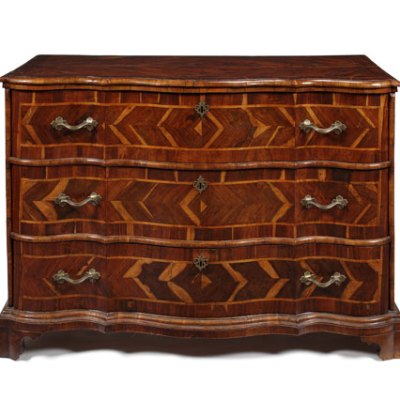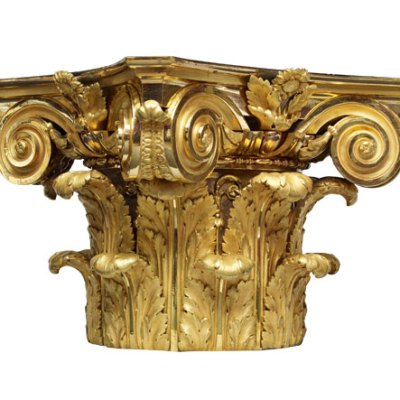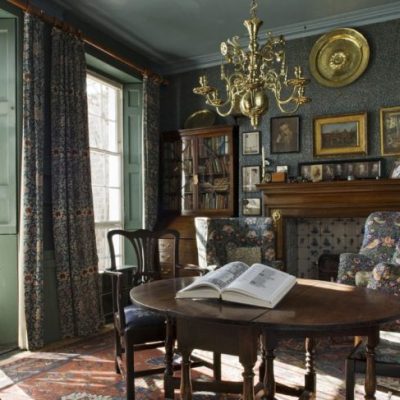Previously, when you typed ‘Chippendale’ into an art-historical database, you would have received basic information, which may or may not have been entirely correct. Now there is a new resource, British and Irish Furniture Makers Online (BIFMO), just launched and available to all online, which will not only tell you about Thomas Chippendale, but which will give you access to all his connections in the furniture trade, to his patrons, to the influence he had on furniture design, and to his materials and workshop practice.
The entry on Chippendale himself dates back to 1986, and was written by Christopher Gilbert, whose two-volume study of the great cabinet-maker was published in 1978. Scholarship has moved on considerably since then, and the aim of the new database is to build the world’s most authoritative and comprehensive database on its subject. Recent publications such as Judith Goodison’s book on the elder Chippendale’s son and associate, The Life and Work of Thomas Chippendale Junior (Philip Wilson Publishers), will inspire new entries online.
What is the background to this new endeavour? In September 2016, the Furniture History Society (FHS), which was founded in 1964 to promote the international study of furniture and historic interiors (and of which I am the current chairman), began collaborating with the University of London’s Institute of Historical Research (IHR) to produce a freely accessible online resource – the initial phase of which is now live.
The next challenge is to develop and expand the database, so that BIFMO will become the world’s first port of call for the history of British and Irish furniture. Its foundation is the society’s 1,000-page Dictionary of English Furniture Makers 1660–1840 (1986), which was the product of numerous volunteer contributors under the editorial direction of the late Geoffrey Beard and Christopher Gilbert. The Dictionary remains the bible for the study of the English furniture trade, but it requires revision and the incorporation of both published and unpublished material, as well as new research to locate and document undiscovered furniture makers and expand the date range from before 1660 to the present day.
This resource will be used by a diverse range of historians, specialists, collectors, enthusiasts, the art trade, and researchers in various other fields such as family history. Publishing the revised and expanded database online has obvious advantages in making the resource fully searchable. It is also internationally available for study, and suggestions for additional biographies or revisions can easily be made by anyone who wishes to communicate new information to the editors.
New research will broaden the database to include furniture makers across Britain and Ireland, with links to information in archives, newspapers, parish and municipal records, maps, and photographs. The details of 12,000 additional London furniture makers, active between 1660–1720, have already been incorporated into the existing database, giving a telling introduction to the types of information that will become available as BIFMO matures (the printed Dictionary only had entries on 500 London makers for that period).
The new records are the product of research into the 17th-century and early 18th–century Joiners’ Company archives by Laurie Lindey, who is the research officer for BIFMO at the IHR. She and Mark Merry, acting director of the Centre for Metropolitan History at the IHR, are working closely with the FHS, not only in devising the way forward for BIFMO but also in raising the necessary funding. Applications are being made to private individuals, grant-giving Trusts and to the Arts and Humanities Research Council in order to guarantee the funding of BIFMO. The cost is £365,000 for the first five years. Funding is also being sought so that events, visits and symposia can be organised around the project in order to reach various audiences around the world. BIFMO’s scope embraces furniture in its broadest historical context.
The partnership with the University of London leads the FHS into new territory, allowing us to delve more deeply into the British and Irish furniture trade, throwing new light on how furniture was made and sold. It will also ensure that BIFMO will be regularly updated, monitored and securely ‘future proofed’ by the University of London. The July 2017 editorial of the Burlington Magazine welcomed the society’s BIFMO initiative: ‘It is to be hoped that funds can readily be found for a project that promises to reshape the future of British furniture studies’.
Further details about donating to the BIFMO project are available here, or from Jill Bace at grants@furniturehistorysociety.org


